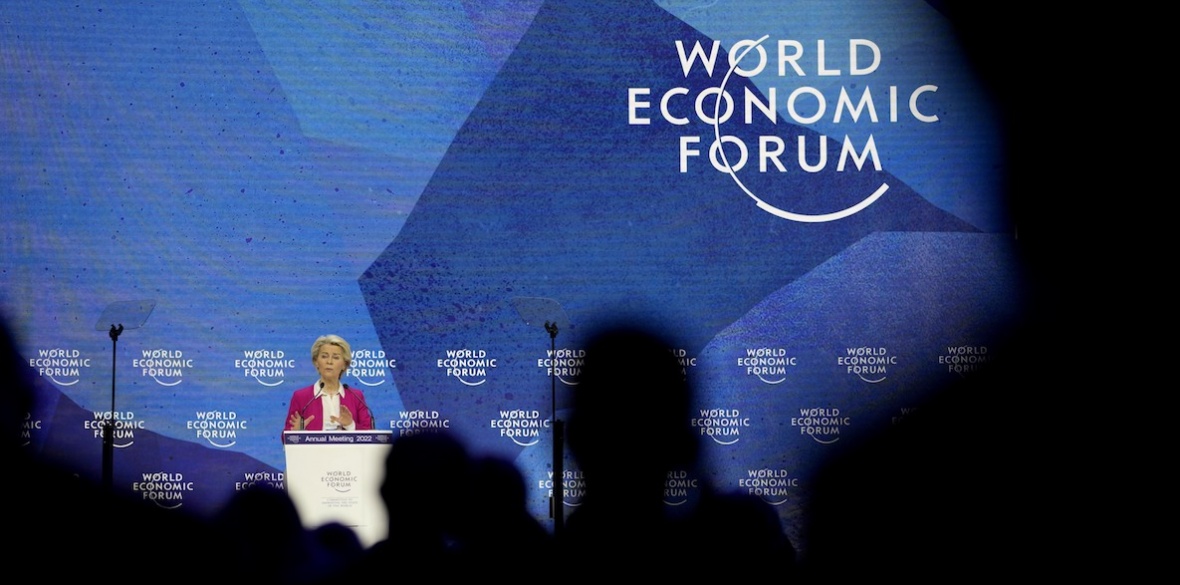WHO can tell the difference between Davos man and woman on the one hand and Davros on the other?
One is a putative master of the universe bent on domination through endless destruction while the other, of course, is merely a fictional creation for BBC’s Dr Who series.
Indeed, no ruler of the Daleks could have done as much damage to humanity as the elite which has just gathered in the Swiss resort for their annual get-together, blandly known as the World Economic Forum, when billionaire investors, corporate chieftains and neoliberal politicians descend from their temples to survey the wreckage around them, this year in person once again.
As ever there is no end to the good they wish to do, provided that doing so does not cost them a penny and leaves them in undisturbed enjoyment of their phenomenal wealth. St Augustine, who pleaded with God to make him virtuous but not right away, is their guiding star.
Since the crash of 2008, the consequence of the neoliberal policies they had championed and benefitted so massively from, the elite has been dimly aware that it has some sort of responsibility to do something.
Climate change. Rampant inequality. Crumbling public services. Stagnant wages. And today — war and the prospect of mass starvation. Davros would be proud.
Yet, a Financial Times journalist present reports, the conference was “more out of touch with the state of the world than it has ever been in the 20-odd years I have attended the conference.”
The problem, as the reporter notes, is that the actual behaviour of big business continues to confound its stated wishes. They want better infrastructure and higher standards of education — yet they resent paying the taxes necessary to fund these common goods.
From healthcare to skill levels, corporate leaders want the state to step up, while systematically undermining its capacity to do so, through demanding privatisation, deregulation, outsourcing and a general shrivelling of the public power to intervene.
Why the disjuncture between desire and deed? It is not because the dark lords of economic creation are stupid, nor even particularly immoral, at least not in all cases.
It is because they have to live by the logic of capital accumulation — not something St Augustine had to trouble himself with. That mandates the endless self-expansion of the capital they control. Failure on that front means extinction at the hands of their rivals.
Recently Davos attendees have made strenuous efforts to sweeten this pill by championing “stakeholder capitalism,” whereby the interests of the environment, employees and communities are somehow factored into their decisions.
It isn’t working. Indeed, it is now denounced as “woke capitalism” and there is a pushback, in the US in particular, demanding a return to exclusive focus on shareholder returns as the measure of business success.
Money paid to the state in taxes is cash not handed to shareholders in dividends or executives in mega-bonuses, for example.
There is a logic in that neoliberal critique. Davos businesspeople are trying to push water uphill, as long as they remain wedded to capitalist competition.
“Monopoly produces competition, competition produces monopoly” as Marx acutely observed as long ago as 1847, and every capitalist would rather be a monopolist than competitive roadkill.
To survive in that race, they need to do better than their rivals. Doing good doesn’t really come into it.
So when it comes to the future of the capitalist system, Davos really has nothing useful to say. Davros with his signature injunction — exterminate! exterminate! — may be more on point when it comes to capitalism’s future.











